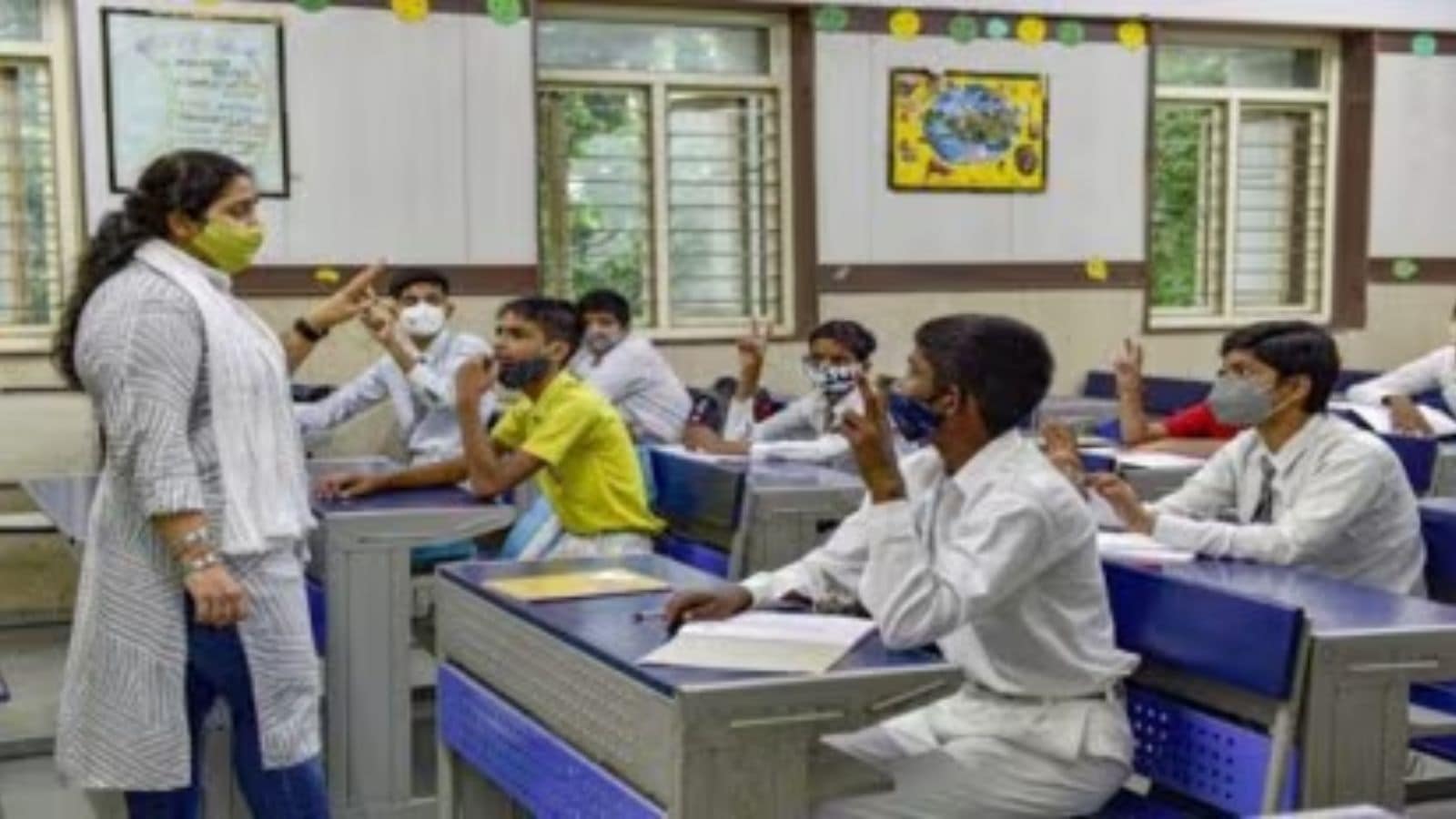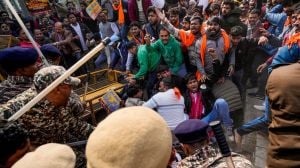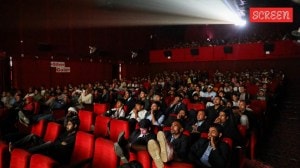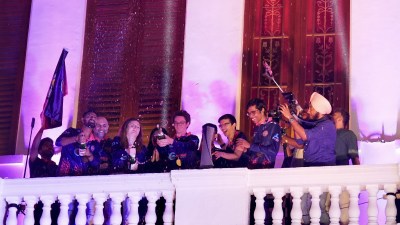How are Delhi schools handling the hybrid mode? Here’s a peek into classrooms
With the AQI hovering around 400 in Delhi, GRAP-4 measures are once again in place and schools have been directed to conduct online classes whenever possible.
 Tania Joshi, principal of Indian School in New Delhi, raised similar concerns, on how managing classes has become "very tough". (Representational)
Tania Joshi, principal of Indian School in New Delhi, raised similar concerns, on how managing classes has become "very tough". (Representational)Schools in the National Capital switched to a hybrid mode of learning for the second time in a month on Monday, following the Delhi Education Department’s orders owing to the resumption of pollution curbs under Stage 4 of the Graded Response Action Plan (GRAP). Following the transition, several school authorities have claimed better attendance for offline classes, as many parents prefer this mode of learning for their children.
As per the order, classes for all students (except those in Class 10 and 12) have to be conducted in a hybrid manner (wherever online mode is feasible).
Previously, all schools in the capital had shifted to a hybrid mode of learning on November 25, before resuming in-person classes on December 5.
To facilitate online classes, schools have made the appropriate arrangements including ensuring adequate bandwidth, and providing laptops with cameras and microphones. Each school has chosen live-streaming platforms like Microsoft Teams or YouTube. As far as the hybrid mode classroom set-up is concerned, the teacher tries to remain in front of the camera, but does move around the classroom to monitor those present. Most schools have made it mandatory for students to keep their cameras on, to ensure attendance. Additional materials, such as PowerPoint presentations are shared with the students after the session.
Private schools: Frequent disruptions affecting normalcy
Madhavi Goswami, principal of Cambridge School in South Delhi’s Srinivaspuri, said, “I would like to emphasise categorically that parents of the primary and middle wings want to send their children for physical classes. Very few students, four or five are on the virtual mode. There is more attendance in physical mode, as the parents are also now more aware…and all possible precautions are being taken both from the parents and the school’s side.”
Among the steps taken widely by most schools, which Cambridge School has also adopted, is to suspend outdoor activities, including ground assemblies. “The otherwise outdoor house activities are now being held indoors… Parents are quite supportive as they send their kids with masks. It is a positive sign that everybody has adapted to this quickly, and is in for studies by all means.”
However, several school principals expressed concern over disruptions in the normal functioning of schools with repeated hoax threats and the compulsory transition to a hybrid mode due to increased pollution levels.
Alka Kapur, principal of Modern Public School in Shalimar Bagh, said, “The biggest concern now is that we work for 220 days, and because of pollution and bomb threats…this number is getting drastically reduced to around 180. It is affecting the education system… Online classes are not effective and we are forced to adapt to them under very compelling circumstances.”
Tania Joshi, principal of The Indian School in New Delhi, raised similar concerns, on how managing classes has become “very tough”. She said, “Children are not that serious while parents remain anxious and increasingly prefer physical classes… What is taught offline cannot be substituted online. For instance, class activities are affected.”
“There are also so many connectivity issues and there are some very real problems for teachers in managing both modes simultaneously. There are quite many disruptions in the functioning of the classes by now with frequent bomb threats…my school received one threat yesterday and now the pollution is the latest issue causing havoc,” she added.
Different schools saw different levels of participation for offline classes, such as Modern Public School, Shalimarbagh which saw 50 per cent of primary-level students attend physical classes. Overall, according to the principal, 40 per cent of the students opted for offline mode and 60 per cent preferred online, as per inputs from the students and guardians.
Mamta Modern School on the other hand saw almost all of the students attend physical classes. According to the principal, Pallavi Sharma, a few asthmatic students in senior sections opted for online classes. “Among juniors, the strength is almost 100 per cent. Due to the green campus, and the care taken at the school level to not send the students outdoors…I think the parents are very comfortable in sending their kids to school,” she explained.
“There are also challenges for working parents and concerns they have raised such as children facing itchy eyes, or low concentration while attending online classes,” Sharma said, adding that it is challenging for the teachers as well to provide personalised attention to students in online classes.
Government schools: ‘Not everyone has smartphones’
Bhumika Sharma, vice principal of Government Girls Senior Secondary School, Karawal, said there was no compulsion to adopt any particular mode, and the choice was left to the students and parents. Around 75 per cent of students attended physical classes on Wednesday, she said.
“There are many students whose families do not have smartphones, so we have grouped students in such a way that if any student in their neighbourhood has the facility, the students can study together in groups,” the vice principal said. An additional teacher, whoever is free and teaching the same subject, helps with monitoring the online class.
“While classes happen simultaneously in physical and online mode, a teacher cannot pay equal attention to online students, so a teacher of the same subject helps with online classes, because we need to ensure that students are attending,” she said.
“Most often teachers give extra classes in online mode after school hours. The module is also updated in WhatsApp groups as the classes take place so that nobody misses out. The school has taken the maximum possible steps, and assemblies have also been discontinued as part of the precautions,” Sharma added.
Most students and guardians prefer physical classes, and working parents remain “burdened” if classes are online, she pointed out. Similar worries were shared by other government school heads. Alok Kumar, head of the school at Sarvodaya Bal Vidyalaya, Vivek Vihar said, “Students are coming from a very unprivileged section… We also feel they should attend physical classes as among other issues such as non-availability of devices and working parents, their mid-day meals are getting affected.”







